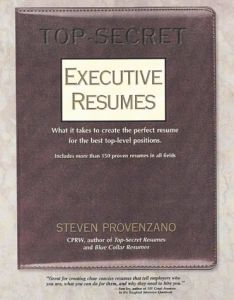
Top Secret Executive Resumes
What It Takes to Create the Perfect Resume for the Best Top-Level Positions
Recommendation
This brief but detailed survey of résumé-writing techniques provides dozens of examples of successful executive résumés. Author Steven Provenzano provides concrete, practical advice for assembling a résumé for both personal review and electronic scanning. His ideas are simple and easy to implement, and are presented in plain, direct language. Interestingly, some of these concepts, especially about the length and layout of a résumé, go against the conventional wisdom of résumé writing and so are especially valuable. getAbstract recommends this solid primer on résumé preparation, which is also a useful reference for experienced job hunters who may find ideas and inspiration from other people’s résumés. Executive job seekers from the mid-level manager on up should find this book useful in their quest for a better use of their talents and time.
Summary
About the Author
Steven Provenzano, CPRW/CEIP, is a professional résumé writer and career coach. He provides a free résumé analysis, and has more than 20 years of experience in corporate HR. He is the author of six career books including Top Secret Resumes & Cover Letters. He conducts seminars on expert résumé writing and career search techniques for corporations and nonprofit groups. He and his staff have worked with thousands of clients worldwide through the Chicagoland office of his company, ECS: Executive Career Services & DTP, Inc., and his Web site: www.Execareers.com.












Comment on this summary